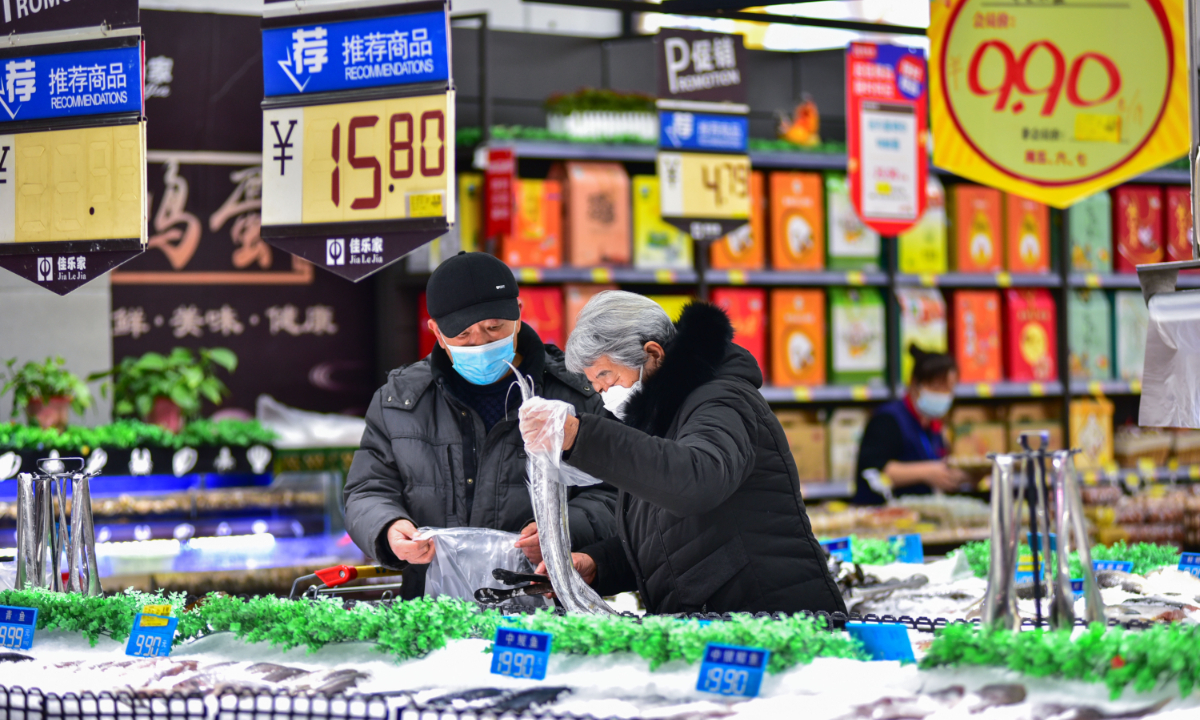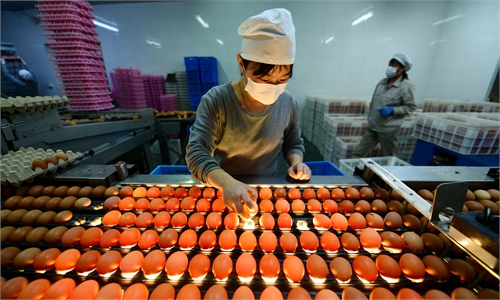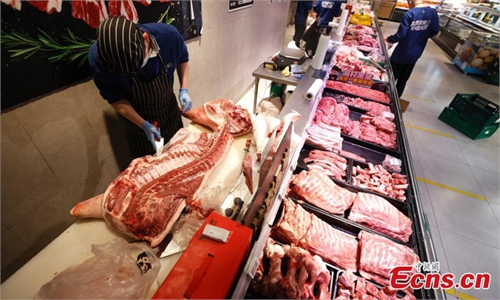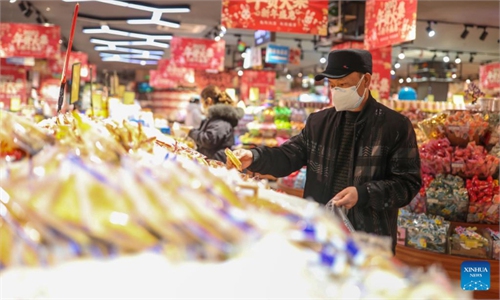Recovery trends see China's Jan CPI pick up 2.1% y-o-y, but ‘more modest’ than expected

Shoppers at a supermarket in Qingzhou, East China’s Shandong Province on February 10, 2023 Photo: IC
China's consumer inflation rose in January due to factors including the Spring Festival holidays and the eased coronavirus prevention and control policies, official data showed on Friday, while producer prices were in deflation.
China's consumer price index (CPI) rose by 2.1 percent year-on -year in January, up from 1.8 percent growth in December, the National Bureau of Statistics (NBS) said.
The hike is due to rising food prices during the festival and the updated virus prevention and control policies, Dong Lijuan, chief statistician at the NBS, said in a statement.
Food prices rose by 2.8 percent, an increase of 2.3 percentage points over the previous month, of which the price of fresh vegetables went up by 19.6 percent, the highest among the categories.
"The growth of CPI is more modest than expected," Tian Yun, a veteran economist, told the Global Times on Friday, explaining that CPI during the Spring Festival holidays is normally high due to seasonal factors.
The modest growth was dragged down by pork prices, Tian said, as data showed that they fell by 10.8 percent, and the decline rate was an expansion of 2.1 percentage points from the previous month due to a continuous supply of live pigs, demonstrating "the government's efforts to curb inflation."
Among non-food items, with the optimization of epidemic prevention and control policies, the demand for travel and entertainment consumption increased significantly, while the price of air tickets went up by 20.3 percent.
China's producer price index (PPI), which measures costs for goods at the factory gate, fell by 0.8 percent last month, NBS data showed.
Dong also attributed the decline of PPI to factors such as fluctuations in international crude oil prices and the decline in domestic coal prices.
NBS said the PPI fell by 0.4 percent month-on-month, and the rate of decline narrowed by 0.1 percentage points from the previous month.
PPI is expected to see a bottom-out in the second quarter of this year, given an improvement in the domestic and overseas environment, which may bring about a pickup in foreign trade, and it will be a sign of strong recovery of the Chinese economy after periodic adjustment in 2021, Tian predicted.
China's economy is shaking off the shadow of COVID-19, backed by huge potential and supportive policies. With its continuously optimized anti-virus response, more positive signs have shown that sectors ranging from tourism and services to catering are returning to their pre-pandemic levels.
Looking forward, we expect CPI inflation to edge down marginally to 2.0 percent in February, reflecting some pullback after the January Spring Festival holiday effects, said a note Nomura sent to the Global Times.



